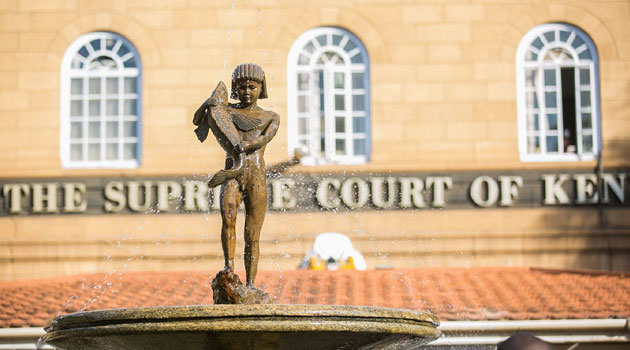MOMBASA,Kenya – Access to Justice and justice remedies are indispensable for the citizenry to protect their socio-economic, cultural and political well-being. The Constitution of Kenya 2010 has entrenched access to Justice as a fundamental limb of the Bill of Rights. It provides that the State shall ensure that Justice is accessible to all.
In addition, Goal 16 of the United Nations 2030 Agenda for Sustainable Development recognizes the importance of access to Justice in the development of peaceful and inclusive societies.
The concept of access to Justice is broad and goes beyond access to courts or legal representation. It involves normative legal protection, awareness, and legal aid as envisaged in human rights standards. Legal aid and awareness are generally viewed as key drivers in delivering access to Justice by upholding equality before the law and allowing everyone the right to legal representation.
Moreover, ICJ Kenya, through its publication of a cost-benefit analysis of legal aid, posits that legal aid has far-reaching economic and social benefits.
Legal aid services to vulnerable groups reduce social exclusion. This is achieved by the presence of legal aid providers in the community, primarily paralegals who help bridge the justice gap by offering legal aid and assistance to the indigent. In addition, legal aid services reduce the overall cost of detention, specifically costs related to pre-trial detention.
In 2016, the National Assembly enacted the Legal Aid Act 2016, whose objective is to promote access to Justice and establish a legal and institutional framework to promote access to Justice. The Act established the National Legal Aid Service (NLAS), whose core mandate is to establish and administer a national legal aid scheme that is affordable, accessible, sustainable, credible, and accountable.
While the State has made notable progress in enacting the Act, full implementation has not been realized. For instance, the Act establishes the Legal Aid Fund intended to be disbursed to meet the expenses incurred by legal aid providers in providing legal aid. While legal aid financing is vital, the gaps inherent in its realization are notable. First, the National Treasury has yet to allocate and disburse these funds, thus hindering its full operationalization.
Consequently, the absence of these funds has far-reaching limitations in the provision of legal aid in Kenya; for example, the failure to operationalize the fund would hinder the operations of NLAS and, primarily, in meeting the expenses incurred in representing persons granted legal aid and the remuneration of legal aid service providers.
Second, there is no subsidiary legislation to provide for the procedural implementation of the fund, thus posing a regulatory gap. As a result, there are no clear guidelines on how the fund will be governed.
It is worth noting that the National Assembly enacted the Legal Aid Regulations through Legal Notice 86 2022. The regulations provide the procedures and guidelines for the provisions of the Principal Act. For instance, the regulations state that a person is eligible for accreditation as a paralegal if they are a member of a duly registered association of paralegals.
On the other hand, the Act recognizes a paralegal as a person employed by NLAS or an accredited legal aid provider who has completed a training course in the relevant field of study in an institution approved by the Council of Legal Education.
As a result, the question of who an accredited paralegal is arises. These inconsistencies in legislation create a gap in the recognition of these paralegals, who are critical to offering legal assistance in the community. Consequently, this recognition gap hinders the provision of legal aid in Kenya. In addition, the inconsistencies in legislation and the lack of implementation call for a legal audit and compliance with the Legal Aid Act 2016.
Against this background, ICJ Kenya will conduct a baseline survey to audit the status of the Legal Aid Act implementation from three key target groups: Paralegals, Organizations working to promote access to Justice through legal aid and critical state actors mandated to promote legal aid and awareness.
The findings from the survey are intended to be used to inform duty-bearers about these policy gaps and lobby for their implementation.
This project is funded and supported by the United Nations Development Programme.
The Author Damaris Kemunto, is an Advocate of the High Court and a Programme Officer At ICJ Kenya.







